

Whether your dog is a big sweetie, a big weirdo or a big athlete, here’s what you need to know about taking care of your big dog.
First, all big dogs start out as little dogs. But pretty soon they grow up — and so does their appetite, their toys, their dog bowls, the vet bill and their need for speed.
He started to grow.
And pretty soon
he was bigger than
the recliner.
Sometimes it can take more than two years for them to reach their full size.
And you won’t like to think about it too much, but their life spans are shorter, too: about 10 to 12 years.
No wonder
you'll let him push
you off the bed
at night.
If a large dog gets too much food as a pup, they’re at a higher risk of growing too quickly, which can cause joint trouble.
For large breeds, being overweight is especially problematic. All that extra weight can be a lot for the joints to carry around.
Keep your good old dog healthy by practicing portion control and feeding nutritious food like IAMS™ Mature Adult Large Breed.
How will she catch
a screaming
15-mile-an-hour
Frisbee in midair
if she has knee trouble.
Back in the day, large-breed dogs were especially energetic. They were working dogs, herders, hunters, cart pullers and people protectors.
Who are we to deny their evolution?
Make sure your dog gets exercise every day.
How do you accomplish this? Walk, walk and more walk. And add in some running, jumping, chasing, hiking, fetching, dog-park visiting, swimming and even agility courses.
Repeat this mantra:
'I am the alpha.'
When it comes to training, think of it this way: The bigger the dog, the harder it is to hide behavior problems. And if you can’t control your super-sized soulmate, they could inadvertently cause damage or hurt someone.
Living large is all
about biting the
wind and living
that sweet,
sweet life.
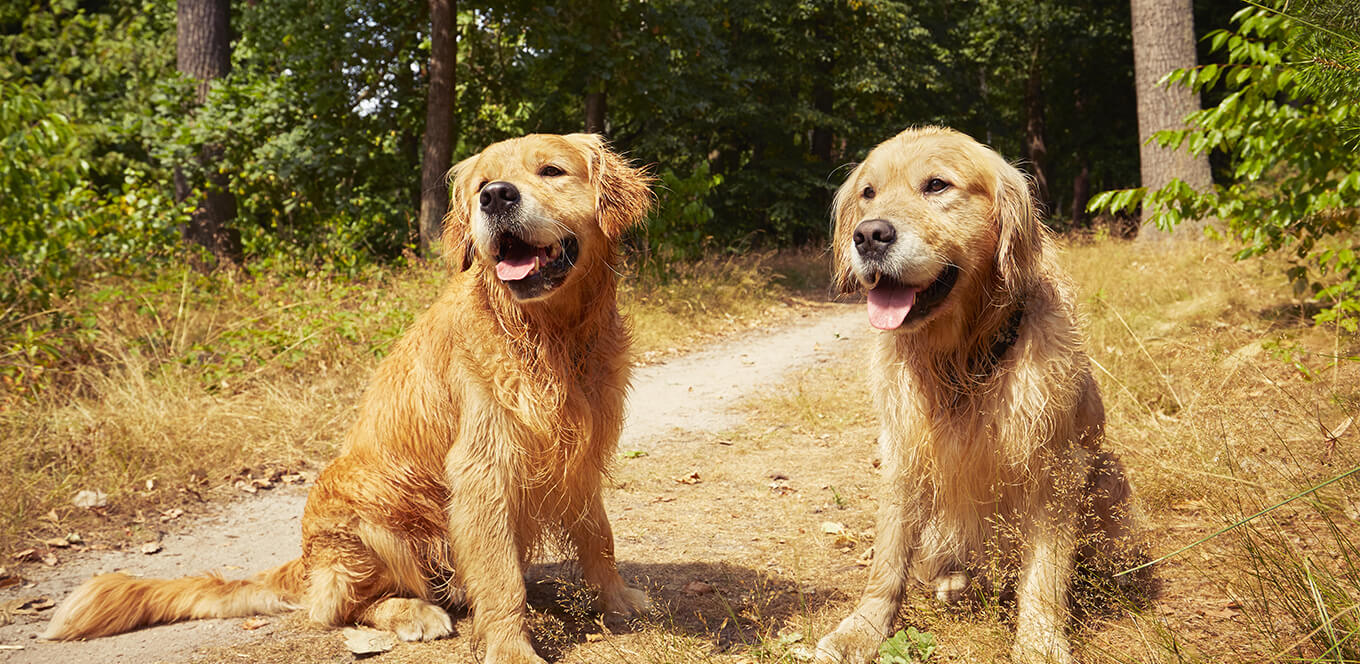


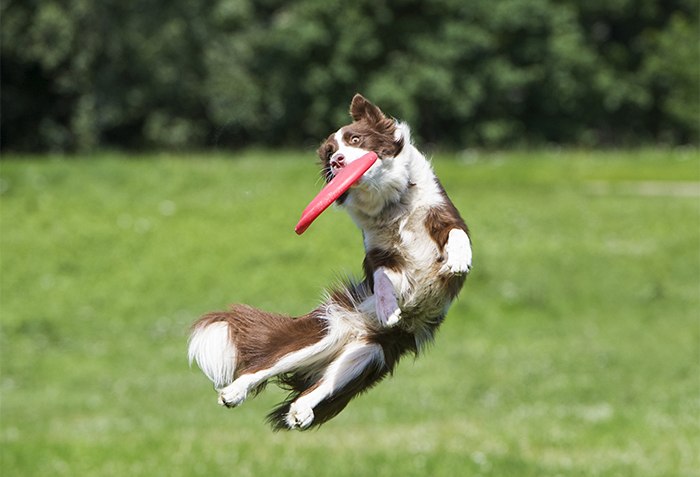
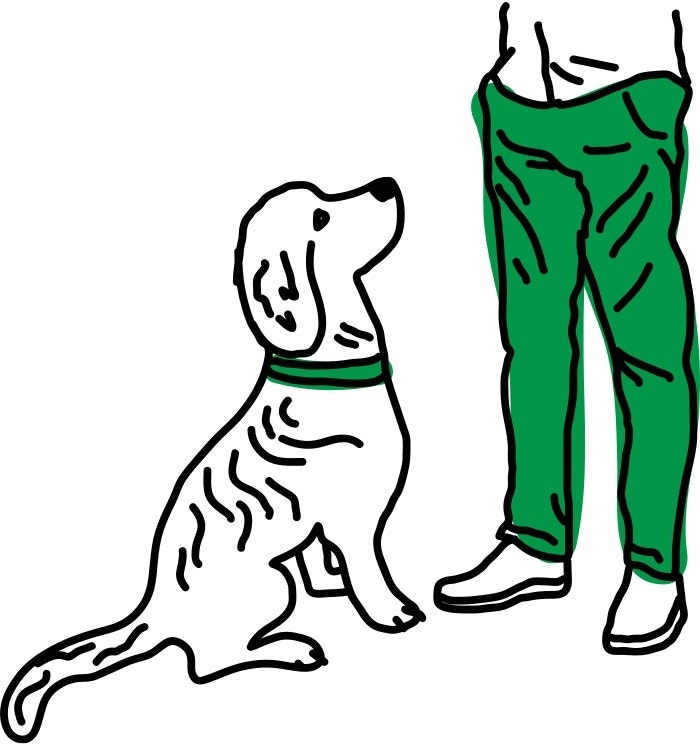
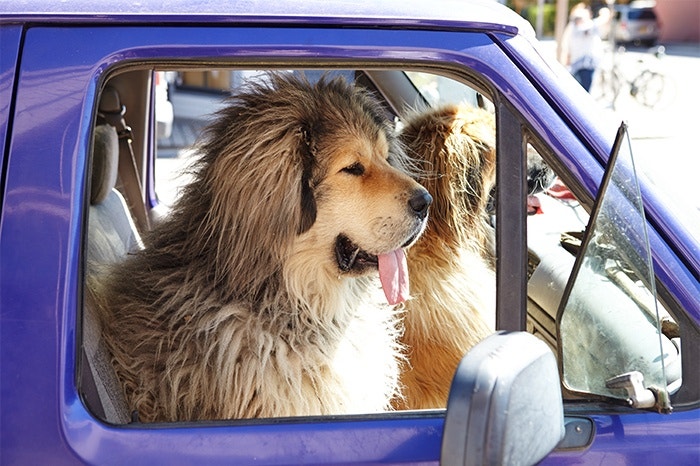

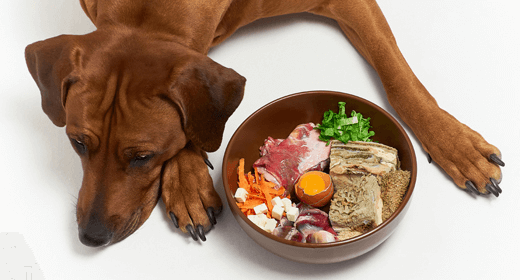
A balanced diet with high-quality protein is essential for your dog's optimal wellness.
Author: Dr. Saza Curaming
Dogs are semi-carnivores. They can be nourished by protein from animal sources, plant sources or a combination of both. Although dogs are often fed a plant-based diet, they are not herbivores.
The difference between animal-based protein and plant-based protein sources is that animal-based ones incorporate chicken, lamb, fish meal, and beef while plant-based protein sources include corn-gluten and soybean meal.
Similar to their carnivorous ancestors–wolves, coyotes, foxes, and jackals, the body structure of dogs is optimized for eating meat which is relatively easier for them to digest than a plant-based diet.
Even though dogs are semi-carnivores, it is important to not leave out animal-based proteins from their diet. Feeding our dogs meat-based products are closely related to their natural ancestral diet. There are three main reasons animal-based proteins are better suited for our furry friends than plant-based proteins.
Including protein in your pet dog’s diet serves several functions. For one, a high-quality protein food for dogs can provide amino acids. Amino acids play a key part in building hair, skin, nails, muscles, tendons, ligaments, and cartilage. Protein plays a key role in hormone and enzyme production.
Amino acids are building blocks and are considered critical to our furry best friend. Different studies have shown that out of the 20 amino acids, 10 of these are called non-essential and can be made by your dog when they need it.
A dog’s need for amino acids will also change depending on age and condition. As dogs age, their body composition and muscle-specific proteins decline and for that reason, giving them protein in their meal helps them maintain a healthy body throughout the years.
That said, it goes without saying that puppies require sufficient protein for growth. According to a study, a puppy's diet should consist of at least 22% protein. For an adult dog, 18% of protein should be incorporated into their everyday meal.
Animal protein sources contain an average of 35% higher protein concentration. It contains higher doses of calcium, phosphorus, omega 6, methionine, cystine, and taurine.
While protein can be derived from plants, the canine digestive system typically has an easier time utilizing animal-sourced protein. Our dog's gastrointestinal tract is not designed to digest large amounts of plant-based products.
To deliver a healthy balance of amino acids to support your dog's health and vitality, IAMS created a recipe that uses chicken as their number one ingredient and aids in maintaining healthy digestion, immune system, skin and coat, and even provides dental care support that is developed with veterinarians.
Ready to achieve your dog’s optimal health with an animal-based protein food? For more information about IAMS Dog, visit https://iams.asia/my/. IAMS Dog is available at all leading supermarkets and grocery stores nationwide.